As the world comes to grip with the Covid-19 Pandemic I feel called to offer some personal thoughts and reflections.
Like most in the medical profession I have been enormously frustrated by the lacklustre response of the UK government to this crisis and so the recent tightening of controls is something that we must embrace, even if it causes inconvenience.
Worse than ‘flu?
First, though, I want to answer the question recently put to me by Peter P: ‘What makes this infection so much worse than influenza?’
• It is more infections than ‘flu. Each person with ‘flu can be expected to infect about 1.5 other people. Each person with Covid-19 is expected to infect about 2.7 other people.
• It is more likely to kill you if you catch it.
• It has a longer incubation period. Typically the symptoms of ‘flu appear about 2 days after being infected. Then, because you feel unwell, you are likely to stop mixing with other people. Covid-19 has an incubation period typically of around five days but it can be up to fourteen days or even more. All that time you can be spreading the infection, even though you do not know that you have been infected.
• We do not have any immunisations against Covid-19.
How have we done so far?
Why has the response of the UK government been so disappointing.?
By the time Covid-19 reached the UK we could already see the results of different approaches in China, S. Korea, Singapore and Italy. Within weeks we could also see what was happening in Spain, Germany, Sweden and Norway.
Perhaps we should not have been surprised that a government with a ten year record of running down public services, and in particular the NHS should have let us down, but the response has been so inadequate as to give credence to the allegations that “Do nothing” was a deliberate policy.
The Sunday Times carried a story that suggested that it had been deliberate government policy to allow more people to get infected with the New Corona virus. It was claimed that Dominic Cummings had promoted a policy of ‘herd immunity, protect the economy, and if that means some pensioners die, too bad.’ It might be added that No 10 (does that mean Dominic Cummings himself?) vigorously denied the story saying that it contained invented quotes.
However, it may matter little whether it was deliberate policy or incompetence. After the first few cases when contact-tracing, testing and isolation was effectively pursued standard Public Health practice seems to have been abandoned.
Unlike S. Korea, where contact tracing and testing were rigorous and effective, the UK repeatedly failed to test and failed to trace and isolate contacts. When a government minister developed Covid-19 after attending a meeting at 10 Downing St we were told that other ministers would not be tested. NHS staff who had been in contact with Covid-19 were not tested, and we are still getting reports of ill patients, seen and treated in Accident and Emergency Departments who are being sent home without testing. To compound the problems with inadequate testing and a failure to trace and isolate contacts our front-line NHS staff have been expected to treat patients without adequate personal protective clothing.
So what changed?
What persuaded our reluctant government to change track? I would like to think that it was down to my tweet:
“Compare Norway, Sweden & UK.
Norway, tests and lockdown: 7 deaths i.e. 0.3% of cases.
Sweden, a bit lax: 21 deaths i.e. 1.1% of cases.
UK, even more lax: 281 deaths i.e. 4.9% of cases.
Lesson is stark: lax policy kills.
UK needs to wake up. #SocialDistance #Selfisolate”
Somehow I think that it might be more to do with a paper from Imperial College which modelled a number of responses to Covid-19. The authors pointed out that the ‘Do nothing’ or Dominic Cummings policy would mean half a million deaths and a demand for critical care beds that was at least thirty times the maximum number of beds available. About the only thing to be said for such a policy is that it would all be over in about six months: by that time would would all either be dead or immune. By announcing some rather half-hearted attempts to reduce social contact the government claimed that they would save 250,000 deaths.
In this as in most of the announcements that followed the UK government seems to have followed rather than lead public opinion. They announced the closure of schools after many schools had had to close, or partially close. They announced that public sports events should not go ahead after the FA had already cancelled all major football matches and Formula 1 races had been cancelled. They asked people not to go to pubs, but did not make it mandatory, thereby leaving licensees in an impossible position: unable to claim on Business continuity Insurance, but without any income.
The UK’s Westminster government is rather like the Duke of Plaza-Toro in the Gondoliers:
In enterprise of martial kind,
When there was any fighting,
He led his regiment from behind —
He found it less exciting.
But when away his regiment ran,
His place was at the fore, O —
That celebrated,
Cultivated,
Underrated
Nobleman,
The Duke of Plaza-Toro!
The Imperial College paper modelled the likely outcomes in terms of number of cases, severe cases sufficient to warrant admission to Intensive Care Units and deaths across a number of options. They looked at Case isolation in the home, Voluntary home quarantine, Social distancing of those over 70 years of age, Social distancing of entire population and Closure of schools and universities. Only by adopting all these measures would we keep the demand for Intensive Care beds within the maximum possible provision of such beds.
Still the government delayed and was only after interventions by a string of Public health experts that they announced the “lockdown”. Even now we have conflicting and confusing advice coming from different cabinet ministers, or even from the same cabinet minister at different times.
What happens after lockdown?
The Imperial College paper carries good news and bad on this. They suggest that as soon as the social distancing measures are relaxed Covid-19 numbers will start to surge at the same rate as they were at the beginning of the epidemic. They suggest that we would therefor have to continue some sort of social distancing for 12-18 months until large quantities of vaccine are available. Their good news is that by switching on and off the most onerous aspects of social distancing in response to the numbers of patients in Intensive Care we would only need such lockdown policies in place for about two thirds of the time. All other scenarios were worse.
My additional good news.
The Imperial Paper is based on mathematical modelling and cannot reflect everything in the real world. They acknowledge that they are only looking at “non-pharmaceutical interventions” i.e. they are ignoring the possibility that we may find some drugs that will modify the course of the illness and avoid or reduce the need for intensive care. There is also a major unknown around asymptomatic cases. It is suggested from the Italian experience that there may be as many as ten times as many asymptomatic cases and cases with symptoms. This could explain partly why it has been difficult to prevent the spread of Covid-19 but it would also mean that each time we relax the lockdown there will be more immune people in the population. The caveat in this is that RNA viruses are very liable to mutate, and we cannot know if future mutations will be more or less virulent or whether there would be cross immunity from one version to another.
Hold onto this one.
The ultimate good news for all of us is that we can avoid the distressing chaos seen in China, Italy and Spain (where ill patient were lying on the corridor floor of a hospital, untreated and coughing). But we can only do this if we all follow the Social Distancing guidance. Let us hope that our government’s dilly dallying has not delayed the start of the lockdown until it is too late. Let us also hope, and ask, that those who know and understand these issues continue to speak out so that The Duke of Plaza-Toro knows who to follow.
PS
An excellent letter from Professor Allyson Pollock in the British Medical journal.
Covid-19: local implementation of tracing and testing programmes could enable some schools to reopen BMJ 2020; 368 doi: https://doi.org/10.1136/bmj.m1187 (Published 24 March 2020) The full letter is behind a paywall, but among the points she makes are:
• Tracing and clinical observation of contacts, isolation, and quarantine are the classic tools in public health to deal with infectious diseases.
• Rapid and effective contact tracing could reduce the basic reproductive ratio from 3.11 to 0.21—enabling the outbreak to be contained. (This means that each infected person would infect less than one new person, whereas now they are spreading the infection to more than three people: hence the rapid spread.)
• public health (doctors) in local authorities say that they have received very little information. This, combined with the devastating cuts to community based communicable disease control and the changes wrought by the Health and Social Care Act 2012 (which carved out public health from health services in England and then further fragmented communicable disease control by removing it to Public Health England) have created a perfect storm.
• Even now it is not too late to institute effective contact tracing on those parts of the country where there are still relatively few cases.

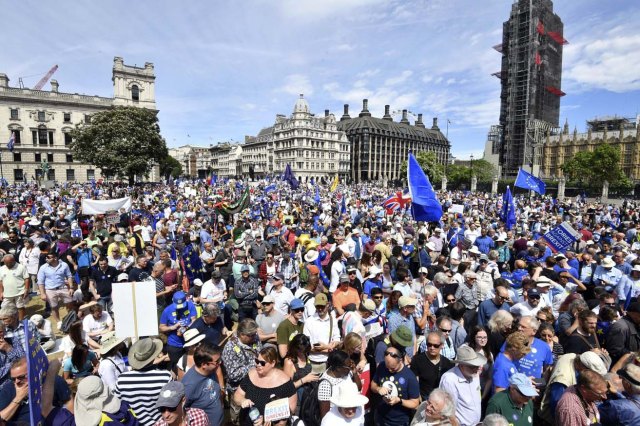
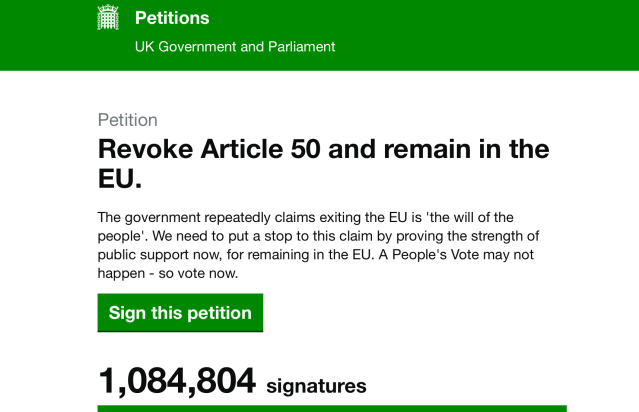

 but mostly they seemed to act as props for excited children to climb and have their pictures taken. There were cutters, binders and old balers. Some of the equipment was belt driven, and I had seen similar items in agricultural shows in Britain, but there was also an awesome wooden baler that compressed straw using a series of levers and ratchets and was powered only by three men, all wearing what seemed to be the agricultural worker’s uniform of white shirt black hat and trousers with braces.
but mostly they seemed to act as props for excited children to climb and have their pictures taken. There were cutters, binders and old balers. Some of the equipment was belt driven, and I had seen similar items in agricultural shows in Britain, but there was also an awesome wooden baler that compressed straw using a series of levers and ratchets and was powered only by three men, all wearing what seemed to be the agricultural worker’s uniform of white shirt black hat and trousers with braces.
 A rather more conventional two man saw was available of anyone to try and a small queue developed as anyone from about five year upwards had a go at sawing off a slice of wood.
A rather more conventional two man saw was available of anyone to try and a small queue developed as anyone from about five year upwards had a go at sawing off a slice of wood. It would have burned for hours, and indeed did burn for three or four hours before being dowsed with water.
It would have burned for hours, and indeed did burn for three or four hours before being dowsed with water. but I enjoyed the atmosphere, enjoyed the pride in country skills, in simple food and in local heritage. I enjoyed the pride that I felt in being part of it all. I may speak a different language, but I am a part of the same humanity and I share so many of the values shown at the show. I am proud to be European.
but I enjoyed the atmosphere, enjoyed the pride in country skills, in simple food and in local heritage. I enjoyed the pride that I felt in being part of it all. I may speak a different language, but I am a part of the same humanity and I share so many of the values shown at the show. I am proud to be European.
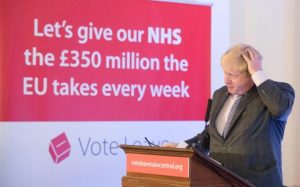
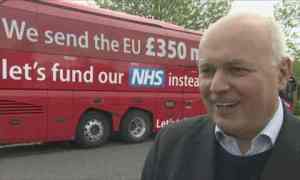

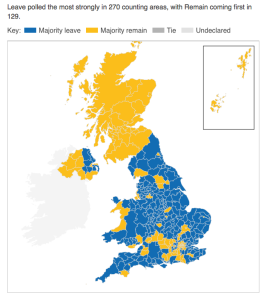
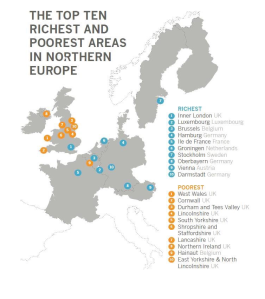

_LRG.jpg)


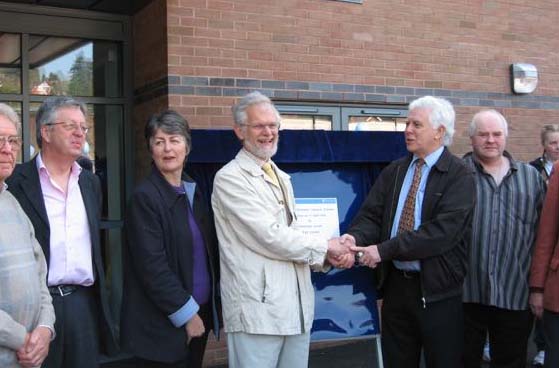 Things locally started to go downhill when we moved to Unitary Authority and the Conservatives took over, but by then I had moved on to the national political scene.
Things locally started to go downhill when we moved to Unitary Authority and the Conservatives took over, but by then I had moved on to the national political scene.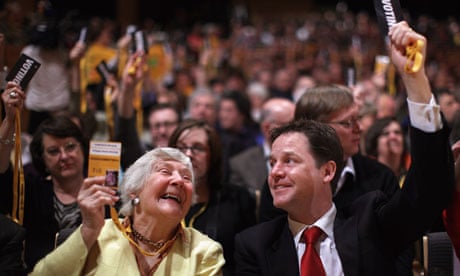 Nick Clegg and Shirley Williams voting in the Health debate at Conference
Nick Clegg and Shirley Williams voting in the Health debate at Conference Tim Farron in the debate on Syria
Tim Farron in the debate on Syria